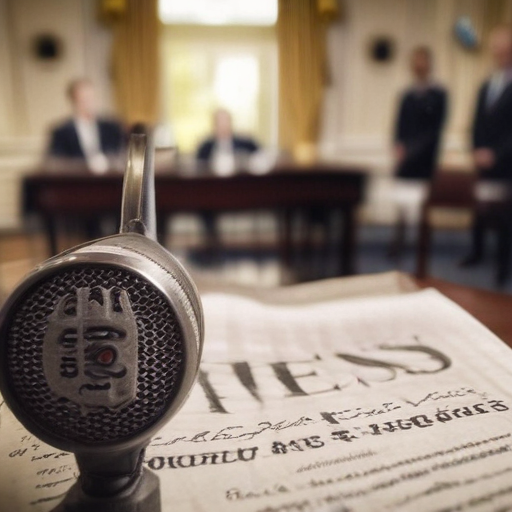In her first appearance as White House Press Secretary, Karoline Leavitt addressed the media, emphasizing President Donald Trump’s commitment to reducing federal spending and ramping up deportation efforts. As the youngest person to assume this role, Leavitt faced immediate scrutiny over the recent unexpected freeze on federal aid, which she defended as a necessary measure to align with the administration’s fiscal responsibilities.
“This pause is about being responsible stewards of taxpayer dollars,” Leavitt stated, referring to the temporary halt in federal aid announced on Monday evening. While she clarified that this is not a comprehensive pause affecting individual assistance programs, she did not provide definitive assurances regarding Medicaid coverage, stating she would look into those details.
Simultaneously, Leavitt confirmed that access to Medicaid-related online resources was temporarily suspended, impacting nearly 80 million people reliant on government healthcare support. Following the briefing, she reassured the public through social media that the systems would be restored shortly.
Notably, Leavitt signaled a shift in press dynamics, inviting independent and emerging media representatives to engage more actively in the briefing process. Breaking from traditional practices where major outlets received precedence, she allocated initial questions to reporters from Axios and Breitbart, reflecting a broader strategy to connect with diverse media voices, including those from social media and podcast platforms.
As she took questions, Leavitt acknowledged previously unheard voices from the back of the room, marking a departure from the norms that had dominated the previous administration’s briefings. She also unveiled plans to restore over 400 press credentials revoked in the past, noting, “If you are producing legitimate news content, no matter the medium, you will be allowed to apply for press credentials.”
In response to a wave of inquiries about immigration, Leavitt maintained that while illegal immigration, including overstaying visas, would result in deportation, the focus would primarily remain on individuals with criminal records.
Leavitt’s briefing concluded with updates on other key topics, including clarifications regarding unexplained drone sightings off the New Jersey coast, attributed to FAA research initiatives.
This first briefing represents a clear attempt by the Trump administration to differentiate itself from past practices, illustrating a commitment to engaging various media forms while adhering to its fiscal and immigration policies. The promising engagement with new media could foster a more inclusive information-sharing environment for the public.
